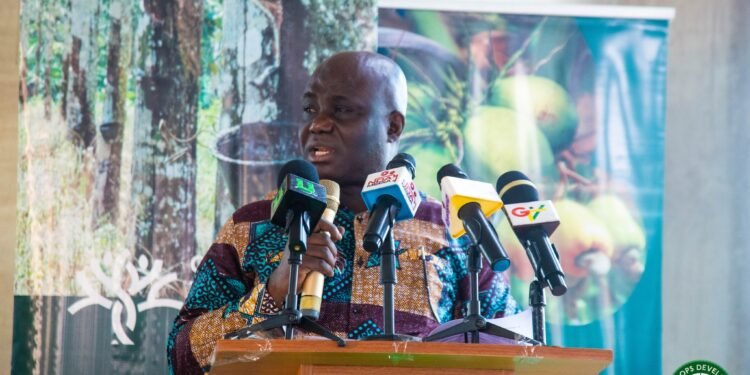Mr Joseph Poku, Chief Actuary of Social Security and National Insurance Trust (SSNIT) has disclosed that SSNIT’s statistics showed that contributors of SSNIT do not die early after retirement contrary to the general notion.
The Chief Actuary of SSNIT, however, attributed the phenomenon to among others, better health care and hygiene, healthier lifestyles, sufficient food and improved and medical care.
“Regardless of the widely held notion of decreasing life expectancy among Ghanaians, especially after pension, our statistics indicated a reverse of the widely held misconception… The scheme assumes most of the contributors to the fund are expected to live up to 15 years after they retire, but some pensioners live well above this assumption age putting some stress on the fund.”
Mr Joseph Poku
Mr Joseph Poku made this known at stakeholders’ engagement forum on expanding and deepening coverage of the self-employed in Cape Coast. The forum followed similar engagement events in the Western, Bono, Greater Accra, Upper East, Upper West and Northern Regions to enable stakeholders to buy-in and support extending coverage of the SSNIT Scheme to the self-employed and workers in the informal sector.
Longevity on the Pension’s Payroll
Mr Joseph Poku asserted that longevity on the pension’s payroll indicates a steady rise in life expectancy of contributors. He noted that contributors aged 72 on SSNIT constituted just 8 per cent in 2002, but that number rose to 18 per cent in 2010 and 25 per cent in 2020. Nonetheless, he stated that SSNIT is equal to the task. “Likewise, the percentage of contributors aged 80, rose from one per cent in 2002 to two per cent in 2010 and seven per cent in 2020.”
The Chief Actuary averred that the primary responsibility of the Trust is to replace part of the lost income of workers in the country due to old age, invalidity or death of a member where dependents receive lump sum payment. “As an employee, one contributes 5.5percent of their basic salary whilst the employer adds up 13percent of the amount as payment to the fund.”
Towards expanding the scheme, Mr Poku could not fathom why the country’s social protection system supports only 14,314 self-employed workers who contributed to the Scheme, representing just 0.8 per cent of the 1.7 million contributors to the scheme.
Why Necessary to Extend Coverage
The Chief Actuary noted that it has become necessary to extend coverage to informal sector workers, not only to increase active membership and contributors to the scheme but also to ensure that every worker in the country enjoys social protection. He added that the move will increase the number of insured persons in the country and thereby, reducing poverty and over-dependence on family relations and friends for support during old age.
“That is why we are now paying more attention to our friends who are self-employed. The feedback we receive clearly shows little understanding among players in the informal sector of how the SSNIT scheme operates.”
Mr Joseph Poku
Mr Poku also described as erroneous the perception that people lost the value of their money when they insured their future incomes with SSNIT.






















